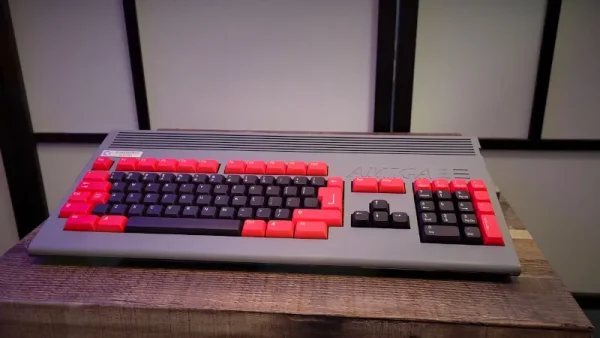
The Rise of Retro PCs and Modern Emulation
Remember the days of bulky beige boxes, floppy disks, and the satisfying whir of a dial-up modem? Retro PCs, once considered outdated relics, are experiencing a resurgence in popularity. From enthusiasts building custom retro machines to the booming world of emulation, there’s a renewed interest in classic computing experiences. Let’s delve into the reasons behind this trend:
A Nostalgic Escape:
For many, retro PCs represent a simpler time in technology. They evoke feelings of childhood wonder, the thrill of early gaming experiences, and the satisfaction of mastering new software. Building or using a retro PC allows users to revisit a bygone era of computing and reconnect with those nostalgic memories.
A Celebration of Innovation:
Retro PCs represent a significant period of technological innovation. From the groundbreaking graphical capabilities of the Commodore 64 to the rise of personal productivity software on the IBM PC, these machines laid the foundation for the computers we use today. Exploring retro PCs offers a fascinating glimpse into the evolution of computing technology.
A Gateway to Classic Games:
Many beloved video games were born on retro PCs. While some have been remastered for modern platforms, others remain exclusive to their original hardware. Emulation software allows users to run these classic games on modern PCs, preserving gaming history and allowing players to experience these titles in their original form.
A Platform for Creativity:
The limitations of retro PCs can be surprisingly inspiring. Programmers and developers used their ingenuity to create games and software within the constraints of limited memory and processing power. The retro PC scene fosters a vibrant community of developers creating new games, tools, and experiences specifically for these classic machines.
The Future of Retro Computing:
The resurgence of retro PCs is more than just a nostalgic fad. It represents a thriving community of enthusiasts, developers, and gamers. Advancements in emulation technology are making it easier than ever to experience classic computing, while the rise of readily available retro PC components allows those who missed out the first time to build their own machines.
Whether you’re a seasoned retro enthusiast or a curious newcomer, the world of retro PCs offers a unique and rewarding experience. So, fire up your emulator, dust off your old machine, or delve into building a retro PC of your own. The world of classic computing awaits!
What are your thoughts on the retro PC revival? Do you have any fond memories of classic computers? Share your experiences and stories in the comments below! Let’s keep the spirit of retro computing alive!
FAQs: Retro PCs – A Blast from the Past or a Glimpse into the Future?
Q: Why are retro PCs suddenly cool again?
A! It’s a mix of nostalgia, appreciating historical tech innovation, access to classic games through emulation, and a creative outlet for developers pushing the boundaries of limited hardware.
Q: I want to play classic games, but I don’t have a retro PC. What are my options?
A! Emulation software allows you to run those games on your modern PC. It’s a great way to experience these titles in their original form.
Q: Building a retro PC sounds interesting! Where do I start?
A! Research readily available retro PC components or pre-built machines online. There’s a vibrant community of enthusiasts to help you get started.
Q: Is the retro PC revival just a fad?
A! The thriving community, advancements in emulation, and continued interest in classic games suggest this trend has staying power.
Q: Share your retro PC stories!
A! Whether you’re a seasoned enthusiast or a curious newcomer, jump into the comments and share your experiences. Let’s keep the spirit of retro computing alive!

Leave a Reply